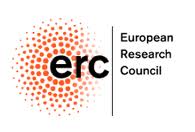
ERC Consolidator Grant for Erik Bähre
Anthropologist Erik Bähre has received a Consolidator Grant from the European Research Council (ERC) for research on the morality of life insurance.
International research
The five-year ERC grant will fund the research project 'Moralising Misfortune: A Comparative Anthropology of Commercial Insurance'. Within this international project, research will be carried out in Brazil, France, India, the Netherlands and the United States. The research focuses on public debate, insured persons and their personal networks, and people – such as insurance actuaries, insurance agents, and funeral directors – who encounter insurance products in the course of their work.
Morality, solidarity, and insurance
The financial world is sometimes seen as a threat, Bähre points out. In the public debate this sometimes conjures up the image of an industry driven by selfishness and the assumption that value can only be expressed in monetary terms. At the same time, insurance policies are viewed as a form of solidarity that can provide a safe and easy way to take care of people such as relatives. How does the solidarity of commercial insurers relate to other sources of solidarity, such as family, voluntary associations, or the state? Why do people choose to buy life insurance (or choose not to), and to what extent has the financial crisis of 2007 had an impact on this behaviour?
Impact of financial world on private lives
An important premise of this research is that people are not calculating machines driven solely by their own interests and their own happiness. The death of a family member or loved one is usually a personal and emotional event. At the same time relatives have to cope with the technical and sometimes bureaucratic procedures of insurance companies. How do people perceive the involvement of the financial sector in their private lives? Do they experience insurers as a help or a hindrance, or perhaps both?
What is economy?
To know what an economy is or should be, it is essential to understand how our economies are shaped by morality and power relations. Bähre, in collaboration with four PhD students, will embark on the new project in September 2016.

